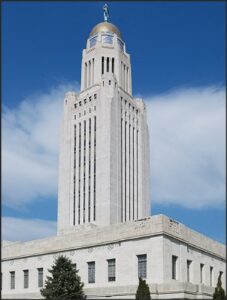by Jim McCarthy
Recently, Bacon’s Rebellion (BR) hosted an article and discussion concerning part- versus full-time legislators as members of the General Assembly. The topic arose from the failure of the General Assembly to conclude its session business without agreement on a state budget. The online conversation favored opposition to full-time legislator positions that might develop into a professional (permanent) elected class of citizens serving over extended periods of time.
While preservation and conservation are hallmarks of political conservatism, there are times when those criteria or values may be compromised by a nostalgia that displaces reason and critical evaluation. BR by its own terms (see its About page) proclaims:
The rules of governance, by which citizens hold these entities accountable, must be constantly updated. And leaders of these institutions must be subject to continual scrutiny.
The entities, naturally, include government. It may also be acknowledged that the processes of democracy and republicanism are not mutually exclusive or objects of binary choices. Classically, republicanism means representative government. There’s a simpler, more elegant solution to creating a more efficient, effective, and democratic legislature: a unicameral body.
At present, few in any electorate favor gerrymandering (except incumbents and political parties) as a rule of governance. Even where and when “independent’ commissions fail to produce fair maps, state and federal courts have intervened to enforce one person, one vote (1962, Baker v Carr). The Commonwealth now has a decade until the next census to experience state legislative districts that are functionally equal in population and subject to more intense partisan competition.
That achievement nationally has consumed attention as the results of gerrymandering have provoked concern (and distrust) about the popular vote’s relation to the election of the nation’s President and Vice President.
In a parallel, perhaps analogous way, the present redistricting in Virginia places it in a position to enhance the republican model by transitioning to a unicameral legislature. The decennial requirement to redistrict tends to encourage political entrenchment of elected officials and partisan organizations. In the interims, reelection energies and efforts consume voter attention and resources detracting from concerns about legislative efficiency and the electoral-legislative paradigm, i.e. republicanism.
While the part-time status of legislators offers some attraction to advocates of republicanism, it contributes little to enhanced representation as repetitive election cycles and candidacies clamor for attention. In this way, the BR commandment to update and scrutinize the governors and institutions is deflected.
The advantage of part-time legislators remaining in a closer relationship with constituencies can also be achieved by term limits on legislative service. Increasing single terms to three years with a three-term limit would require legislators to be more responsive to campaign commitments and more immune to lobby interests. Successive limited terms provide ample time to develop levels of expertise and oversight necessary to meet voter expectations and discharge of the prime legislative functions. A commensurate unitary compensation scale could be enacted to attract qualified candidates. Establishing some campaign finance reforms could further diminish reliance upon questionable or dark money sources.
Since the present configuration of 100 delegates and 40 senators represents identical populations, distinguished only by district boundaries, elimination of the senate chamber leaves a set of political districts for nearly 10 years at population parity among them. While the two-chamber model may have had a unique rationale to the Founding Fathers, there is no similar justification for that model in state legislatures since intrastate representation is not based upon geography. The founding concept, it must be noted, for two chambers in Congress was clearly modified and democratized by the popular election of Senators in 1913 upon adoption of the Seventeenth Amendment.
Eliminating the legislative friction inherent in a two-chamber body would increase its efficiency and responsiveness to the electorate and diminish political party partisanship seeking control in one chamber to offset any gains or losses in the other. A unicameral legislature in Virginia could also improve its own effectiveness by modifying the Dillon Rule to grant more home rule authority to counties. Expanding home rule for counties would decrease a number of measures presently requiring legislative attention while enhancing local government. The 150-year-old judicial rule forces the General Assembly to become involved in micro-managing local issues as local governments have become more mature and sophisticated.
The likelihood or probability of creating a unicameral legislature in the Commonwealth may be remote, most particularly because the very folks whose jobs would disappear have a deciding role in the abolition. Nonetheless, discussion of enhancements to democratic governance, as BR notes, requires continuous scrutiny and accountability and the discussion must begin somewhere as a clear signal to the governing class that it exists as a creature of the electorate.
Jim McCarthy is a retired New York City attorney now living in Virginia.



